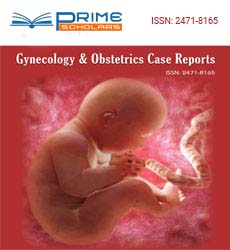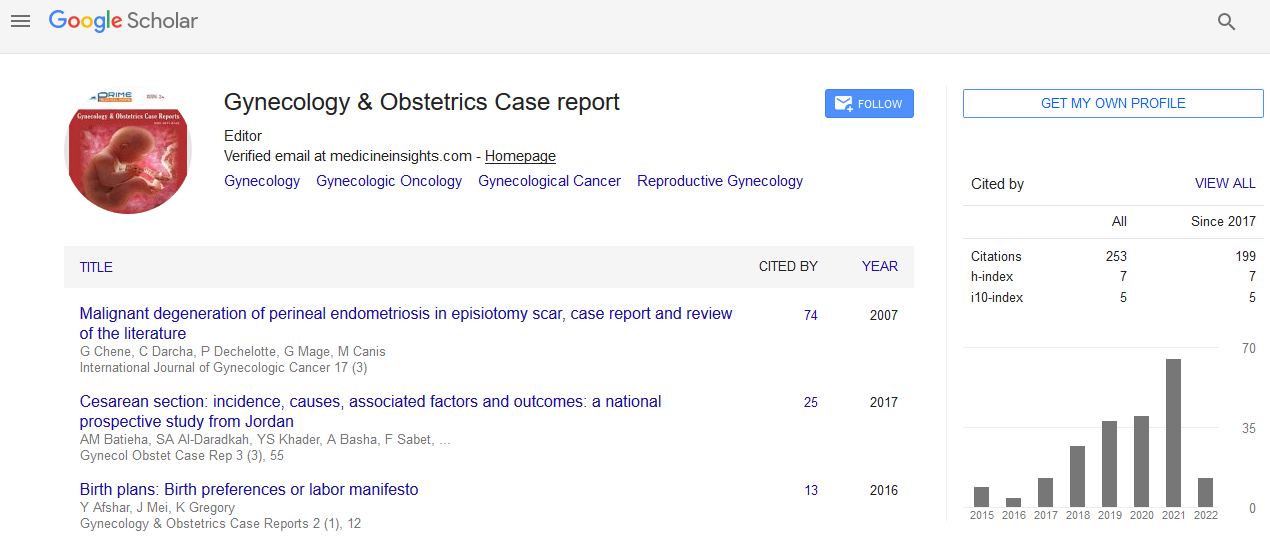Short Communication - (2022) Volume 8, Issue 5
Dietary Supplementation with Nitrates during Pregnancy
Zahra Azizi*
Department of Gynecologic Oncology, Poznan University of Medical Sciences, Poznan, Poland
*Correspondence:
Zahra Azizi, Department of Gynecologic Oncology, Poznan University of Medical Sciences, Poznan,
Poland,
Email:
Received: 04-May-2022, Manuscript No. IPGOCR-22-13742;
Editor assigned: 06-May-2022, Pre QC No. IPGOCR-22-13742 (PQ);
Reviewed: 18-May-2022, QC No. IPGOCR-22-13742 (Q);
Revised: 23-May-2022, Manuscript No. IPGOCR-22-13742 (R);
Published:
30-May-2022, DOI: 10.36648/2471-8165.8.5.24
Introduction
Due to its high amount of inorganic nitrate (NO3) and ability
to boost the bioavailability of nitric oxide, a wide range of
beetroot products has become a popular supplement this
year (NO). Beetroot supplementation has traditionally been
thought of as a multi-targeted supplemental treatment
for cardiometabolic disorders such hypertension, vascular
dysfunction, atherosclerosis, cardiorespiratory disorders, and
diabetes.
The L-arginine-NO synthase pathway, as well as alternate
enzymatic and non-enzymatic nitrate-nitrite-NO pathways,
creates NO, an important physiological signalling chemical.
Inorganic NO3 is now highlighted as a potential NO precursor
that can improve glucose metabolism, vascular homeostasis,
insulin signalling pathways, metabolic disorders, and diabetes
complications, owing to recent changes in historical concepts
on hazardous effects of NO3 and some documents regarding
negative associations between dietary intakes of NO3 and
metabolic diseases [1,2].
Description
NO is important in several physiological aspects of a healthy
pregnancy, including early embryonic development,
implantation, and placenta perfusion, as well as maternal
systemic vasodilation and renal adaption. Physiologically, both
endothelium and neuronal NO synthase upregulate maternal
NO production throughout pregnancy [3,4]. NO deficiency
has been linked to a variety of disorders during pregnancy,
including maternal hypertension, preeclampsia, proteinuria,
fetoplacental endothelial dysfunction, hemodynamic
disturbances, and an imbalance between coagulation and
fibrinolysis in the foetal and maternal circulations, all of which can lead to foetal growth restriction. During the 20-year research
effort to improve NO signalling in pregnancy with the goals of
vascular function, placental development, and foetal growth,
L-arginine and L-citrulline (as NOS enzyme substrates) as well
as NO-donors (e.g. glyceryl trinitrate, S-nitrosoglutathione,
isosorbide mononitrate) have been suggested as effective, safe,
and inexpensive drugs that may contribute to Early pregnancy
diseases such as repeated abortions and dysmenorrhea,
therapy of premature labour, and other pregnancy illnesses
such as hypertension and preeclampsia have all been treated
with NO donors or NO substrates.
In the direction of a novel strategy, beetroot juice, a NO3- rich dietary supplement, is currently being promoted as a
more appealing option with less side effects than current
pharmaceuticals. Following some evidence that NO3 supplementation, when given in the form of beetroot juice,
improved maternal hypertension and foetal outcome in a
preeclampsia-like animal model, an ongoing clinical trial is
currently targeting pregnant women with hypertension for a
short-term week) administration of NO3 in the form of beetroot
juice. There are also several commercial health claims about
the beneficial effects of beetroot, recommending it as a super
food and unique supplement in pregnant women; these claims
primarily include improvement of iron deficiency and anaemia,
digestion and constipation, prevention of osteoporosis,
decrease blood pressure, metabolism regulation, and immune
system enhancement [5].
Due to its high NO3 level, beetroot supplementation may be
associated with a wide range of unexpected maternal and
fatal adverse effects. Because of its possible endogenous
conversion to N-nitroso compounds (NOC), induction of
methemoglobinemia, and mutagenic, teratogenic, and carcinogenic qualities, as well as anti-thyroid effects, NO3 is
addressed with caution [6].
Conclusion
With the growing public interest and widespread health
claims about the benefits of NO3-rich dietary supplements
like beetroot byproducts in pregnant women, urgent preclinical
and clinical studies are needed to determine whether
supplementation with beetroot or other dietary NO3-rich
sources is a safe intervention during pregnancy. For a safe
intervention, it will also be necessary to establish maternal
eligibilities for NO3 supplementation, as well as the dose and
duration, while taking into account the phases of pregnancy.
Conflict of Interest
No conflict of interest by author.
REFERENCES
- Bloomer RJ, Butawan M, Pigg B, Martin KR (2020) Acute ingestion of a novel nitrate-rich dietary supplement significantly increases plasma nitrate/nitrite in physically active men and women. Nutrients 12(4): 1176.
[Google Scholar], [Crossref], [Indexed at]
- Deldicque L, Francaux M (2016) Potential harmful effects of dietary supplements in sports medicine. Curr Opin Clin Nutr Metab Care 19(6):439-45.
[Google Scholar], [Crossref], [Indexed at]
- Hathcock J (2001) Dietary supplements: how they are used and regulated. J Nutr 131(3): 1114S-1117S.
[Google Scholar], [Crossref], [Indexed at]
- Kalidindi M, Velauthar L, Khan K, Aquilina J (2012) The role of nitrates in the prevention of preeclampsia: an update. Curr Opin Obstet Gynecol 24(6): 361-367.
[Google Scholar], [Crossref], [Indexed at]
- Zullino S, Buzzella F, Simoncini T (2018) Nitric oxide and the biology of pregnancy. Vasc Pharmacol 110: 71-74.
[Google Scholar], [Crossref], [Indexed at]
- Brender JD, Olive JM, Felkner M, Suarez L, Marckwardt W, et al. (2004) Dietary nitrites and nitrates, nitrosatable drugs, and neural tube defects. Epidemiol 15(3): 330-336.
[Google Scholar], [Crossref], [Indexed at]
Citation: Azizi Z (2022) Dietary Supplementation with Nitrates during Pregnancy. Gynecol Obstet Case Rep. Vol.8 No.5:24.
Copyright: © Azizi Z. This is an open-access article distributed under the terms of the Creative Commons Attribution License, which permits unrestricted use, distribution, and reproduction in any medium, provided the original author and source are credited.

